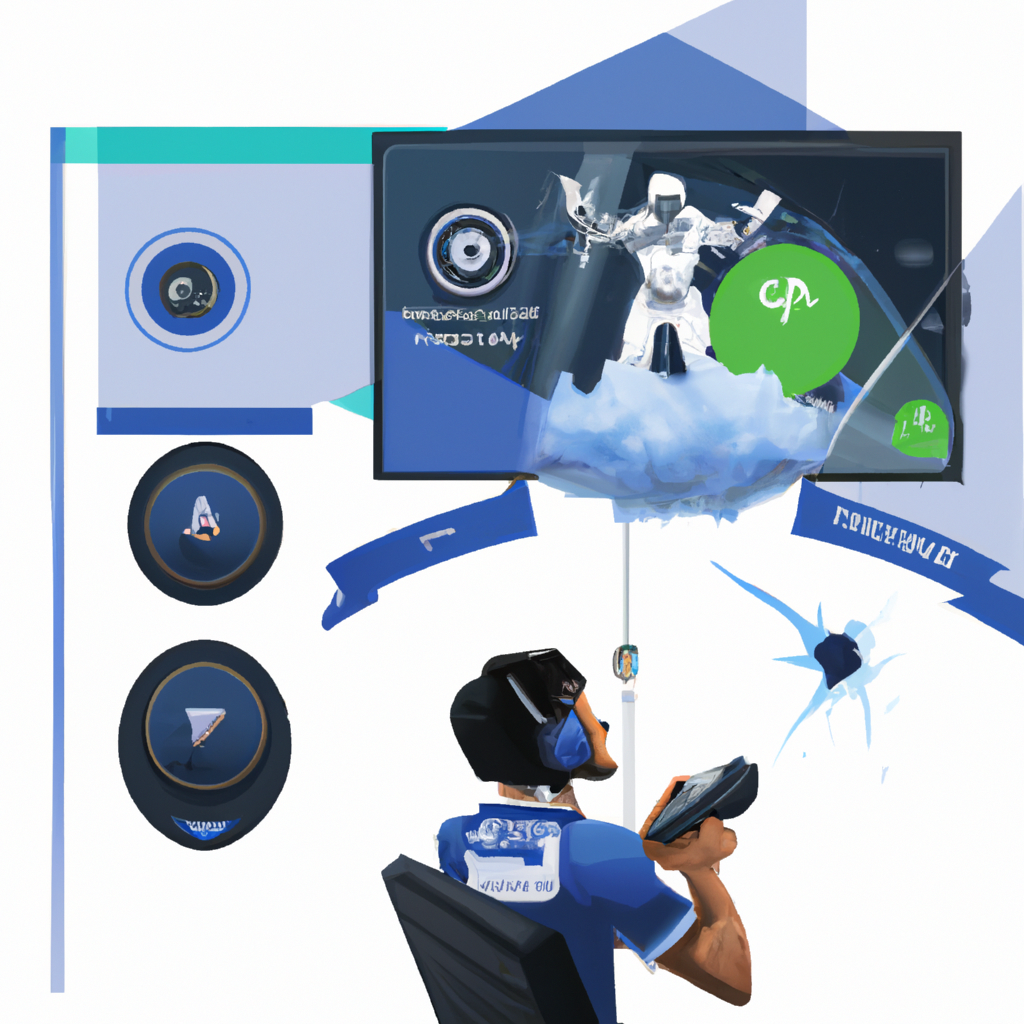
AI Gameplay Innovation: Revolutionizing Player Experiences in Game Development #
Introduction #
In recent years, Artificial Intelligence (AI) has been at the forefront of transforming gameplay mechanics and enhancing player experiences in the world of game development. AI technologies have revolutionized how games are designed, played, and experienced by players. This article delves into the cutting-edge AI techniques that are reshaping the gaming industry, providing developers with new tools to create immersive and engaging gameplay experiences.
Evolution of AI in Games #
AI in games has come a long way from simple rule-based systems to sophisticated machine learning algorithms and neural networks. Traditionally, game AI was limited to pre-programmed behaviors and decision-making processes. However, advancements in AI technologies have enabled developers to create more dynamic and adaptive game environments that respond intelligently to player actions.
Case Study: AlphaGo #
One of the most notable examples of AI innovation in games is AlphaGo, developed by DeepMind. AlphaGo’s ability to defeat human champions in the game of Go demonstrated the power of AI in mastering complex games through deep reinforcement learning. This breakthrough inspired game developers to explore AI techniques for enhancing gameplay experiences.
AI-driven Procedural Content Generation #
Procedural Content Generation (PCG) is a technique that uses AI algorithms to create game content dynamically, such as levels, maps, characters, and quests. By leveraging AI-driven PCG, developers can generate endless variations of content, keeping players engaged and offering unique gameplay experiences with each playthrough.
Example: No Man’s Sky #
“No Man’s Sky” is a prime example of a game that utilizes AI-driven PCG to create a vast, procedurally generated universe with billions of unique planets to explore. The game’s AI algorithms generate terrain, flora, fauna, and ecosystems dynamically, providing players with an infinite universe to discover.
Adaptive AI Behavior #
Adaptive AI behavior refers to AI systems that learn and evolve based on player interactions and feedback. These systems adapt their strategies, difficulty levels, and responses to player actions, providing a personalized and challenging gaming experience.
Implementation: Dynamic Difficulty Adjustment #
Dynamic Difficulty Adjustment (DDA) is a technique that uses AI to adjust the game’s difficulty in real-time based on the player’s skill level and performance. By analyzing player behavior and performance metrics, the AI can dynamically scale the game’s difficulty to ensure a balanced and engaging experience for players of all skill levels.
if player_score < target_score:
increase_enemy_health()
elif player_score > target_score:
decrease_enemy_health()
AI-driven Player Behavior Prediction #
AI technologies can analyze player behavior patterns and predict their actions, preferences, and decisions within the game. By understanding player dynamics, developers can tailor gameplay experiences, recommend personalized content, and enhance player engagement.
Use Case: Player Retention Prediction #
Using machine learning algorithms, developers can predict player retention rates based on in-game behavior, social interactions, and gameplay metrics. By identifying at-risk players and offering targeted interventions, developers can improve player retention and enhance the overall gaming experience.
AI-powered Narrative Generation #
AI-driven narrative generation involves creating dynamic and adaptive storylines based on player choices, actions, and interactions. By leveraging AI algorithms, developers can generate branching narratives, personalized quests, and immersive storytelling experiences that respond to player decisions.
Example: AI Dungeon #
AI Dungeon is an interactive storytelling game that uses AI language models to generate dynamic and open-ended narratives based on player inputs. The AI adapts the story based on the player’s choices, creating a unique and personalized storytelling experience with endless possibilities.
Conclusion and Future Outlook #
AI gameplay innovation is reshaping the landscape of game development, offering new opportunities for creating immersive, engaging, and dynamic gameplay experiences. As AI technologies continue to evolve, we can expect to see more sophisticated AI-driven gameplay mechanics, personalized experiences, and interactive storytelling in future games. By embracing AI innovation, developers can unlock new creative possibilities and push the boundaries of gameplay design to captivate players worldwide.
In conclusion, AI is not just a tool for enhancing gameplay; it is a catalyst for redefining the future of gaming. By leveraging AI-driven techniques, game developers can create immersive worlds, adaptive challenges, and personalized experiences that resonate with players on a deeper level. As AI continues to advance, the possibilities for innovation in gameplay are limitless, promising a future where games are more engaging, dynamic, and unforgettable than ever before.
